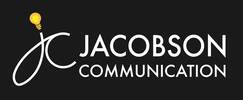|
You’re busy running a startup. You don’t have a communications “team” of 50 people to help you prepare for conversations with the press. You personally don’t have time for an intensive 2 week course on media training. What you DO have is an interview or media opportunity in two days that you’re scared to death about. Fear not. Here’s what you need to know to get started. 1. Know The Show Familiarize yourself with the show or venue you’re going to be on. Do your homework. If it’s a blog, read previous articles. If it’s a TV show, watch previous episodes. If it’s a podcast, or radio show, listen to a few episodes. If it’s available, read over the list of episode titles and guests over the last few months. Try and get a sense of why the show exists and what it’s about. 2. Know The Target Audience
Figure out what kind of organization this is, and who they appeal to. It’s important to estimate who a target audience is. It’s very different speaking to a magazine aimed at parents versus one aimed at chemical engineers. Once you’ve identified their audience as best you can, try and connect that audience with elements of your brand. What about your brand or industry might these people find compelling? What challenges might there be? Knowing this ahead of time will help you give better answers and stay focused during the interview. 3. Know How Long They Need You Ask ahead of time, how long they need you for, or how long your segment, or article will be. Are you doing a 2 minute interview? Do they need you on-set for two hours? Will they interview you for two hours and cut it down to two minutes? Highly polished weekly shows, like Sunday Morning for example, shoot hours of interviews and on-site b-roll for a final segment that might only be 10 minutes when it airs. Livestreamers may want you to sit on the air for 4 hours and chime in occasionally when the subject arises. 4. Don’t Overschedule The Day The day you have a big interview is not the day to go to your kid’s soccer game, hold a board meeting, or start remodeling the kitchen. Sure, big company executives might be able to do that because they have several interviews a week, but you’re with a startup. Startups typically get less media interviews and each one really matters. Media interviews are important. Schedule time beforehand to do your homework and internalize the topics you’re going to cover. Get a good night’s sleep before, and be sure to eat and hydrate. Schedule reminders on your cell phone and smartwatch so you actually get to where you need to be on time. After the interview, take a little time to pause and reflect internally or with your team on what went well and what you’d like to change in the future. 5. Practice Your Quick Pitch This is what you say when a reporter asks what your startup is or how it came about. It incorporates your elevator pitch, but it’s not word-for-word, and it includes a little about the founding. Write it down. Rehearse it. Keep it short. Keep it interesting. Test it on family members if you need to, and see if they find it engaging. 6. Keep a Notebook If you have a tendency to freeze, keep a little notebook next to you with “at a glance” points. The show’s name. The host’s name. If you’re talking about a study, the key statistics, etc. Depending on the show, you may not be able to have it right next to you, but it’s good to make your own notes ahead of time to practice key points. 7. Know The Reporter’s Interviewing Style Most interviewers won’t throw a “gotcha” question out of nowhere, but some do. Know which kind of reporter you are working with. Some reporters will talk with you for a long time, and the show gets edited down later for time. Some reporters need just a 20 second answer. Once you know what kind of interview you’re going to have, you can be more prepared. 8. Get or Come Up With Possible Questions Ahead of Time Reporters working at print publications and online publications typically don’t mind giving you questions ahead of time. Some reporters for TV and radio can also send you a sample list of questions. When that’s not an option, look at previous interviews the reporter has done and imagine what questions they will likely want to know about your startup, or the industry. 9. Be Industry Current Sometimes interviews are booked months in advance, but then something groundbreaking happens the day of your interview that changes the industry landscape. If this happens, you may be called on to talk about it, after all, you’re the industry expert. Research your industry the day before (and the day of) going into your interview and be able to talk about specific trends if the need arises. The last thing you want to do is learn about a breaking story in your industry on the air. 10. Prep for the Hard Question If It Happens It’s always good to be ready for an unexpected difficult question. Imagine what that could possibly be, and practice answering the question as best you can. Remember, you’re never obligated to reveal secrets about your company (in fact, don’t). But you should be able to sidestep the question like a decent human being and still carry on a good interview. You can always say something like, “That’s not something I’m able to talk about at this time, but what I can tell you is…” You could also say, “what I think is more interesting to your viewers right now is… “ but you want to be sure you’re right if you use this tactic. The Bottom Line: A little preparation goes a long way. Pay attention to your industry and to interviews you find compelling. You’ll get better with practice and paying attention. You can do this. Comments are closed.
|
Article Categories
All
About the AuthorJennifer is a storyteller who connects big ideas with audiences. She specializes in public relations, brand development, and creative services for startups, theme parks, musicians, authors, nonprofits, and more. From audience awareness to brand development, and positive social change, Jennifer works with clients she believes in and that she believes she can help. Archives
April 2022
|
Branding Resource Center
Get Jennifer's Upcoming BookSnow Tires for Startups: How to Get PR Traction, is a practical guide for startups and growing brands who want to get the most out of their PR. Learn to think like a storyteller and weave your brand into a larger narrative that puts you in the history books. Snow Tires for Startups will help you navigate the world for PR and get the positive attention you need to move your brand forward.
|
“Is my startup ready for PR?" The answer has a lot to do with what your startup is already doing. Find out if you're ready now, if you should wait, or if you should have started PR months ago with this simple quiz.
Read more. 3 Ways Big PR Firms Slow Down StartupsDo big global PR firms work for startups? The siren song of larger, global PR firms are tempting to many, but there are good reasons many startups should avoid them. You can do better than a big firm. Here’s why.
Read more. |
|
Jacobson Communication specializes in public relations, brand development, and creative services for startups, theme parks, musicians, authors, nonprofits, and more. From audience awareness to brand development, and positive social change, you'll be surprised what better communications can do for your brand.
|
Copyright 2025 Jacobson Communication
LAND ACKNOWLEDGEMENT
Acknowledgement to the southern Lushootseed-speaking Coast Salish Indigenous Peoples whose land I live and work on.
The Duwamish People
This land also includes the traditional land and waterways of the first people of Seattle, the Duwamish People of past and present. It is with honor and gratitude to the land itself, the plants, animals, and the Duwamish Tribe that I practice my work.
The Puyallup Tribe
This land is also on and adjacent to the traditional homelands and waterways of the Puyallup Tribe. The Puyallup people have lived on and stewarded these lands since the beginning of time and continue to do so today. I recognize that this land acknowledgement is one small step toward true allyship, and I commit to uplifting the voices, experiences, and histories of the Indigenous people of this land and beyond.
To learn more about the Puyallup Tribal Language program, visit:
https://www.puyalluptriballanguage.org
The Awaswas People
I would not be the person I am today without growing up in what is now called the Bay Area. For the Awaswas-speaking Uypi Tribe, the Amah Mutsun Tribal Band, current and future generations of Indigenous Peoples across the Bay Area. I acknowledge and honor the eight tribes known as the Awaswas People, who were the original people and caretakers of much of what is now known as the South Bay Area. The Awaswas had, since the dawn of time, worked with and cultivated the area so it had a variety and abundance of animals and plants. Their ways and practices maintained balance and biodiversity that the area has not known since colonization. The Spanish displaced, enacted violence against, enslaved, and forced the Awaswas People and other Indigenous Peoples of the Bay Area into the mission system, taking the Awaswas people to missions Santa Cruz and San Juan Bautista. Some Indigenous peoples of the area were able to escape to the south and into what is now Mexico. Some of those who escaped had to deny their identity and say they were Mexican in order to survive. Much of this history is still being discovered. Today, the Amah Mutsun Tribal Band, composed of the descendants of Indigenous people taken to missions Santa Cruz and San Juan Bautista during Spanish the Spanish Colonization of the Central Coast is working hard to restore traditional stewardship practices on these lands and heal from historical trauma.
To learn more about the Amah Mutsun Land Trust, click here.
The Duwamish People
This land also includes the traditional land and waterways of the first people of Seattle, the Duwamish People of past and present. It is with honor and gratitude to the land itself, the plants, animals, and the Duwamish Tribe that I practice my work.
The Puyallup Tribe
This land is also on and adjacent to the traditional homelands and waterways of the Puyallup Tribe. The Puyallup people have lived on and stewarded these lands since the beginning of time and continue to do so today. I recognize that this land acknowledgement is one small step toward true allyship, and I commit to uplifting the voices, experiences, and histories of the Indigenous people of this land and beyond.
To learn more about the Puyallup Tribal Language program, visit:
https://www.puyalluptriballanguage.org
The Awaswas People
I would not be the person I am today without growing up in what is now called the Bay Area. For the Awaswas-speaking Uypi Tribe, the Amah Mutsun Tribal Band, current and future generations of Indigenous Peoples across the Bay Area. I acknowledge and honor the eight tribes known as the Awaswas People, who were the original people and caretakers of much of what is now known as the South Bay Area. The Awaswas had, since the dawn of time, worked with and cultivated the area so it had a variety and abundance of animals and plants. Their ways and practices maintained balance and biodiversity that the area has not known since colonization. The Spanish displaced, enacted violence against, enslaved, and forced the Awaswas People and other Indigenous Peoples of the Bay Area into the mission system, taking the Awaswas people to missions Santa Cruz and San Juan Bautista. Some Indigenous peoples of the area were able to escape to the south and into what is now Mexico. Some of those who escaped had to deny their identity and say they were Mexican in order to survive. Much of this history is still being discovered. Today, the Amah Mutsun Tribal Band, composed of the descendants of Indigenous people taken to missions Santa Cruz and San Juan Bautista during Spanish the Spanish Colonization of the Central Coast is working hard to restore traditional stewardship practices on these lands and heal from historical trauma.
To learn more about the Amah Mutsun Land Trust, click here.



 RSS Feed
RSS Feed



